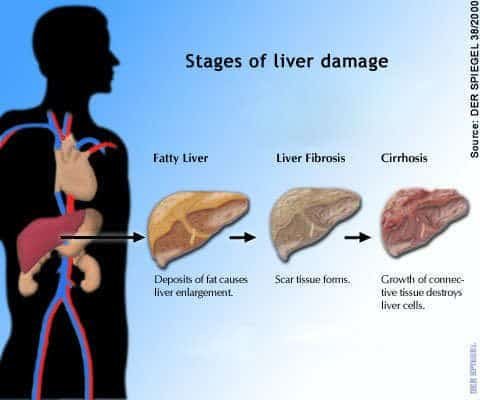If you or someone you know has been diagnosed with fatty liver disease, you may be wondering about the life expectancy and what it means for your future. In this article, we will explore the factors that can affect life expectancy with fatty liver disease and provide you with valuable information to help you navigate this condition.
1. Understanding Fatty Liver Disease
Fatty liver disease, also known as hepatic steatosis, is a condition characterized by the accumulation of fat in the liver. This excess fat can lead to inflammation and damage to the liver cells, impairing its ability to function properly. There are two main types of fatty liver disease:
- Non-alcoholic fatty liver disease (NAFLD): This type of fatty liver disease is not caused by excessive alcohol consumption. It is commonly associated with obesity, insulin resistance, and metabolic syndrome.
- Alcoholic fatty liver disease (AFLD): As the name suggests, this type of fatty liver disease is caused by excessive alcohol consumption. It is important to note that not all heavy drinkers develop AFLD, and the severity of the disease can vary.
2. Factors Affecting Life Expectancy
Several factors can influence the life expectancy of individuals with fatty liver disease. It is important to remember that each case is unique, and the progression of the disease can vary greatly from person to person. Here are some factors that can impact life expectancy:
- Severity of liver damage: The extent of liver damage plays a significant role in determining life expectancy. In mild cases of fatty liver disease, the liver can often repair itself with lifestyle changes. However, in more severe cases, the damage may progress to advanced liver disease, such as cirrhosis, which can significantly impact life expectancy.
- Underlying conditions: Fatty liver disease is often associated with other health conditions, such as obesity, diabetes, and high blood pressure. These underlying conditions can further complicate the disease and affect life expectancy.
- Alcohol consumption: For individuals with alcoholic fatty liver disease, reducing or eliminating alcohol consumption is crucial for improving liver health and increasing life expectancy. Continued alcohol abuse can lead to irreversible liver damage and significantly shorten life expectancy.
- Diet and lifestyle: Making positive changes to your diet and lifestyle can have a significant impact on the progression of fatty liver disease. A healthy diet, regular exercise, and weight management can help reduce liver fat and improve liver function, ultimately increasing life expectancy.
- Medical treatment and management: Seeking medical treatment and following a comprehensive management plan can help slow down the progression of fatty liver disease and improve life expectancy. Your healthcare provider may recommend medications, dietary modifications, and regular monitoring to ensure optimal liver health.
3. FAQs on Life Expectancy with Fatty Liver Disease
Q: Can fatty liver disease be reversed?
A: In many cases, fatty liver disease can be reversed through lifestyle changes. By adopting a healthy diet, exercising regularly, and maintaining a healthy weight, you can reduce liver fat and improve liver function.
Q: Can fatty liver disease lead to liver cancer?
A: While fatty liver disease itself does not directly cause liver cancer, it can increase the risk of developing liver cancer. It is important to manage fatty liver disease and address any underlying conditions to reduce the risk of complications.
Q: How often should I have my liver function tested?
A: The frequency of liver function tests may vary depending on the severity of your fatty liver disease and any underlying conditions. Your healthcare provider will determine the appropriate testing schedule for you.
Q: Can fatty liver disease be inherited?
A: Fatty liver disease can have a genetic component, but it is not solely inherited. Lifestyle factors, such as diet and exercise, also play a significant role in the development and progression of the disease.
4. Conclusion
While the life expectancy of individuals with fatty liver disease can be influenced by various factors, it is important to remember that there is hope. By making positive changes to your lifestyle, seeking medical treatment, and managing any underlying conditions, you can improve liver health and increase life expectancy. Remember, you are not alone in this journey, and with the right support and guidance, you can take control of your health.
Fun Fact: Did you know that the liver is the only organ in the human body that can regenerate itself? Even if a portion of the liver is removed or damaged, it has the remarkable ability to grow back to its original size within a matter of months.
Originally posted 2023-07-24 15:38:02.



